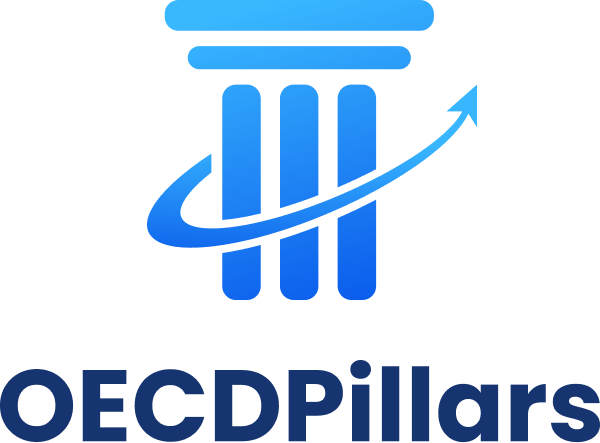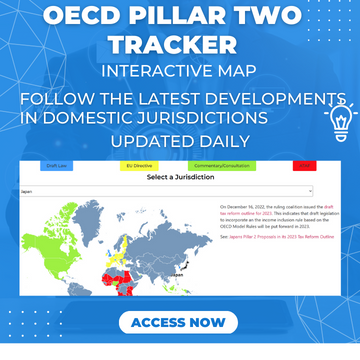General
The December 2022 Safe Harbour and Penalty Relief Guidance provided for a Simplified Calculations Safe Harbour. The aim being to reduce or simplify the number of computations and adjustments an MNE is required to make under the GloBE Rules.
The only simplified calculations that have currently been developed by the OECD are the Non-Material Constituent Entity (NMCE) Simplified Calculations.
A number of jurisdictions already include the Simplified Calculations Safe Harbour in their GloBE legislation (see our Pillar Two GloBE Guides), including:
– Austria
– Bulgaria
– Germany
– Ireland
– Luxembourg
– Romania
– UK
The December 2023 OECD Administrative Guidance provides further information on the NMCE Simplified Calculations (for the Simplified Calculations Safe Harbour).
NMCE Definition
NMCEs are constituent entities of an MNE Group that are not consolidated on a line-by-line basis in the MNE Group’s audited consolidated financial statements solely for size or materiality grounds. It also includes any permanent establishments of these entities (providing the Main Entity is itself an NMCE.)
It should be noted that an entity will only be considered a NMCE if an external auditor has agreed that the entity does not meet the materiality standards and has been excluded from the consolidation process on those grounds.
Where an entity’s revenue exceeds EUR 50 million, the entity will only be an NMCE if its financial accounts are prepared in accordance with an Acceptable Financial Accounting Standard or an Authorised Financial Accounting Standard.
Simplified Calculations
Given the significant practical difficulties MNEs may have in obtaining accurate reporting figures for NMCEs (as they aren’t included in the consolidated accounts), NMCEs can benefit from the following simplifications:
– The GloBE revenue and GloBE income of an NMCE is the total revenue of the NMCE as determined in accordance with the relevant CbC regulations.
– The adjusted covered tax of a NMCE is the income tax accrued as determined in accordance with the relevant CbC regulations (note that this excludes any deferred tax expenses, adjustments for non-current items and provisions for uncertain tax liabilities).
Relevant CbC Regulations are the Country-by-Country Reporting Regulations of the UPE Jurisdiction or of the surrogate parent entity jurisdiction if a Country-by-Country Report is not filed in the UPE Jurisdiction.
If the UPE jurisdiction does not have CbC requirements and an MNE Group is not required to file a CbC Report in any jurisdiction, Relevant CbC
Regulations are the OECD BEPS Action 13 Final Report and the OECD Guidance on the Implementation of Country-by-Country Reporting.
Simplified Tests Under the Safe Harbour
These simplified figures are then used for three tests under the Simplified Calculations Safe Harbour.
In essence it allows MNEs to use simplified income, revenue, and tax calculations in determining whether it meets the standard de minimis, excess profits or ETR tests under the GloBE Rules.
Therefore, the standard tests under the GloBE rules apply but the method of determining the actual figures used in the calculations is simplified.
The Simplified Calculations Safe Harbour Tests are:
– When determining whether there are any excess profits for GloBE purposes, the GloBE Income for the NMCE is the Total Revenue under the relevant CbC regulations (the Routine Profits Test);
– For the purposes of the De Minimis Test, GloBE Revenue and GloBE Income for the NMCE are the Total Revenue under the relevant CbC regulations (the De-Minimis test);
– When calculating the GloBE ETR, the GloBE Income and Adjusted Covered Taxes for the NMCE are the relevant Total Revenue and Accrued Income Tax for the Current Year as determined under the relevant CbC regulations (the ETR Test).
If one of these tests is met, top-up tax is deemed to be zero.
The Simplified Calculation for NMCEs does not apply to cases where the group did not prepare consolidated financial statements or to groups composed solely of a Main Entity and a PE.
How the Safe Harbour Applies
The Simplified Calculations Safe Harbour for NMCEs is an annual election and is made for each NMCE individually.
Whilst the NMCE election is made for each individual NMCE, the Simplified Safe Harbour tests are considered for the jurisdiction. Therefore, if there were other constituent entities in the jurisdiction, they would determine their GloBE income and adjusted covered taxes under the standard GloBE rules, whilst the NMCE would use the simplified Revenue/tax from the CbC Report. The three Simplified Safe Harbour Tests (Routine Profits, ETR Test and the De-Minimis Test) would then be considered on a jurisdictional basis.
It should be noted that the OECD acknowledges that the use of the simplified calculation for NMCEs is likely to result in a lower
GloBE ETR than using the standard rules given there is a broader definition of
GloBE income and a narrower definition of
adjusted covered taxes.











